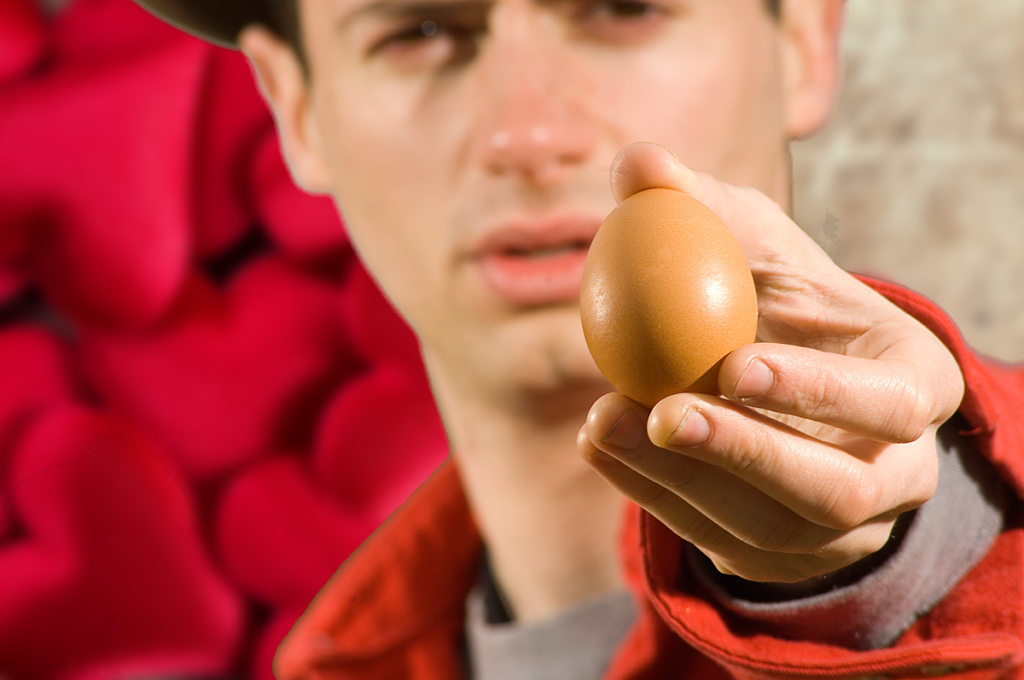Valentine’s Day is an occasion for sweethearts to exchange cards and gifts. Traditionally, gifts have included flowers, chocolates, and jewelry. Those are still excellent choices. However, the current joke circulating ahead of this Valentine’s Day is: If you want to give your sweetheart something really expensive this year, give them eggs! Business writer Josh Funk explains, “Chickens may not be able to fly very far, but the price of eggs is soaring.”[1] He reports, “The national average price for a dozen eggs hit $3.59 in November [2022], up from $1.72 a year earlier, according to the latest government data. That’s putting stress on consumer budgets and the bottom lines of restaurants, bakeries and other food producers that rely heavily on eggs.” In California, the price of eggs is even higher. According to the USDA, the January price of a dozen large eggs in California was about $6.72, which is double what it was last July.[2]
What’s Going On?
Analysts from Q.ai observe, “The rising cost of eggs and the increasing costs of other food items has left many American families feeling the squeeze in their weekly or monthly grocery budget.”[3] They go on to note, “There isn’t an isolated reason why the price of eggs is rising. Many different factors are contributing to the increase in prices.” Those factors include:
• Avian Flu. Experts say this is the deadliest outbreak of avian flu in U.S. history, and, surprisingly, it is affecting egg-laying chickens more than chickens being raised for meat consumption. Funk reports, “Egg prices are up significantly more than other foods — even more than chicken or turkey — because egg farmers were hit harder by the bird flu. More than 43 million of the 58 million birds slaughtered over the past year to control the virus have been egg-laying chickens, including some farms with more than a million birds apiece in major egg-producing states like Iowa.”
• Inflation. The Q.ai staff notes, “A substantial factor impacting egg prices is inflation. When inflation rises, the price of all goods and services tends to increase. With inflation passing 7% annually, it’s not surprising that there has been a noticeable increase in the price of eggs.” Emily Metz, CEO of the American Egg Board, told Funk, she believes all the cost increases farmers have faced in the past year were a bigger factor in the price increases than bird flu. She told him, “When you’re looking at fuel costs go[ing] up, and you’re looking at feed costs go[ing] up as much as 60%, labor costs, packaging costs — all of that … those are much much bigger factors than bird flu for sure.”
• Consumer Demand. Consumer demand and egg supply are, of course, part of the inflation picture discussed above. Financial journalist Greg Iacurci reports, “Consumer demand for eggs has been buoyed by a pivot away from some higher-cost proteins amid broader food inflation, the USDA suggested in an October outlook report.”[4] According to the United Egg Producers (UEP) staff, “Per capita consumption of eggs [in the United States] has increased 15% in the past 20 years.”[5]
• Corporate Greed. According to the Q.ai staff, “Some companies have used inflation as a reason to raise prices and boost their profits. The U.S. House Subcommittee on Economic and Consumer Policy recently published an analysis showing that some corporations have used inflation as an excuse to hike prices at rates higher than their costs have increased. This has allowed companies to increase their profit margins to some of the highest levels since the 1950s. It is plausible that the search for higher profit margins is a component of higher egg prices.”
How precious have eggs become? Journalist Amanda Holpuch reports eggs are now being smuggled into the U.S. from Mexico. “From California to Texas,” she writes, “border agents are increasingly seizing a surprising type of contraband from Mexico: eggs.”[6] The situation has become so serious, Holpuch reports, “Customs and Border Protection officials in San Diego and El Paso issued warnings on Twitter to remind people that they were not allowed to bring uncooked eggs from Mexico into the United States.”
Will the Price of Eggs Drop?
According to most experts, you shouldn’t be looking for a sharp drop in egg prices any time soon. Journalist Kim Bellware explains, “The egg industry is dealing with unresolved supply chain challenges kicked off by the coronavirus pandemic — including labor and building costs — as well as a devastating outbreak of highly pathogenic avian influenza (HPAI) that began in February [2022]. … That means the cost of eggs is expected to remain high, at least in the short term, according to Michael Swanson, the chief agricultural economist at Wells Fargo.”[7] Swanson indicates that current egg prices are “wildly high” and prices will drop when production improves, which should occur later this year. Jada Thomson, a University of Arkansas agricultural economist, told Funk, “There may be some relief coming in egg prices in the next couple months because egg farmers have been steadily replacing their flocks lost to bird flu last year and demand will ease a bit now that people are done with their holiday baking.” Nevertheless, she notes, “Bird flu remains a wildcard that could still drive prices higher if there are more sizeable outbreaks at egg farms.”
The Q.ai staff concludes, “Overall, it’s likely that prices will fall eventually. However, it is uncertain whether they will return to previous levels or hit a plateau above the historical range of about $1 to $2 per dozen that has existed since the mid-1990s.” The good news is that wholesale egg prices have already begun to drop. Iacurci reports, “Wholesale egg prices have cratered in recent weeks from record highs, meaning consumers may soon see relief at the grocery store. But the dynamics of egg pricing from the wholesale to retail market, in addition to other factors, means that’s not a sure thing in the short term.”[8] According to Iacurci, the wholesale price of a dozen eggs at the beginning of February was $2.61 — “a 52% decrease from the peak of around $5.43 on Dec. 19 and a 47% decrease from the beginning of 2023.”
Concluding Thoughts
To meet growing demand, the United Egg Producers staff reports that hens are being bred to produce more eggs. They note the average number of eggs produced by each laying hen has, over the past 20 years, increased from 264 to 296 eggs per year. That means the loss of 43 million hens over the pass year has resulted in the loss of 12,728,000,000 eggs. On the other hand, our desire to consume eggs hasn’t changed. Store-bought eggs aren’t as valuable as the jeweled eggs created by the House of Fabergé for the Tzars; however, breakfast in bed featuring a warm serving of eggs can still charm your sweetheart this Valentine’s Day.
Footnotes
[1] Josh Funk, “Making an omelette is a lot more expensive these days. Egg prices are soaring—even more than for most other foods,” Fortune, 10 January 2023.
[2] Leticia Juarez, “Egg prices continue to skyrocket in California,” ABC7 Los Angeles, 11 January 2023.
[3] Staff, “Is The Price Of Eggs Rising Because Of Inflation? Not Exactly.” Forbes, 12 January 2023.
[4] Greg Iacurci, “Here’s why egg prices surged in 2022. Those elevated costs could last into the first quarter of 2023, expert says,” CNBC, 29 December 2022.
[5] Staff, “U.S. Egg Production and Hen Population,” United Egg Producers.
[6] Amanda Holpuch, “The Newest Contraband at the Mexican Border: Eggs,” The New York Times, 25 January 2023.
[7] Kim Bellware, “Egg prices haven’t come down with inflation. Here’s why.” The Washington Post, 10 January 2023.
[8] Greg Iacurci, “Wholesale egg prices have ‘collapsed.’ Why consumers may soon see relief,” CNBC, 3 February 2023.





